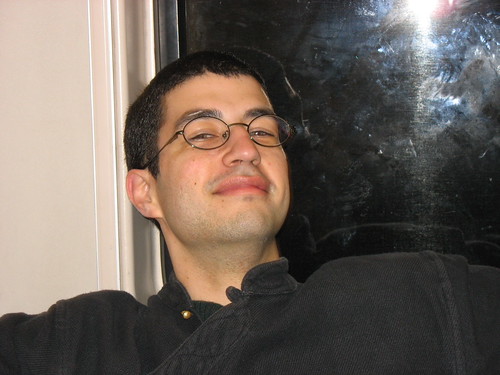Dante Alighieri’s Inferno
Begin: 03/28/07
End: 03/31/07
Quality: Nine Out of Ten.
Reason:. Reading Plan.
Genre: Classics. Epic Poetry. Italian Literature
Original Language: Italian.
Date of Publication: 1314.
Fog Index: 11.5/63% are harder.
Flesch Index: 64.4/73% are harder.
Flesch-Kincaid Index: 8.8/66% are harder.
Complex Words: 10%/71% have more complex words.
Number: Once?
Storyline: Dante takes a tour of hell, led by the Roman poet Virgil.
Begin: 03/28/07
End: 03/31/07
Quality: Nine Out of Ten.
Reason:. Reading Plan.
Genre: Classics. Epic Poetry. Italian Literature
Original Language: Italian.
Date of Publication: 1314.
Fog Index: 11.5/63% are harder.
Flesch Index: 64.4/73% are harder.
Flesch-Kincaid Index: 8.8/66% are harder.
Complex Words: 10%/71% have more complex words.
Number: Once?
Storyline: Dante takes a tour of hell, led by the Roman poet Virgil.
This is definitely just one of those books which I find myself completely unprepared and utterly inadequate to discuss or to write anything half way intelligent about since it’s one of the major works of the western canon. I mean it’s Dante’s Inferno, what the fuck do I have to say that hasn’t been said before. What the fuck can I possibly write after thousands of scholars have already talked and analyzed this work for centuries?
(It also doesn’t help that I’m pretty exhausted right now.)
I really enjoy it. I thought it was going to be a lot tougher than it actually is. I also found myself being really flabbergasted at the cruelty of the medieval Christian world view. It was pretty harsh. Eternal damnation? Shit. That is so pretty heavy stuff.
It was interesting to me also how Dante seemed to have two ideals, Christianity and the Roman Republic. He chooses Virgil as his guide through hell. The deepest levels of hell, actually Satan’s mouths, contain Brutus, Cassisus and Judas. The first two betrayed Julius Ceasar and the third Jesus Christ.
I am also curious about the episode with the Medusa. “O you possessed of sturdy intellects,/observe the teachings that is hidden here/beneath the veil of verses so obscures” (Canton IX, line 61-63) I believe they talk about it in the Medusa Reader so I am going to have to look that up.
I guess that’s really all I have to say about it. Well, also just that it is endlessly fascinating book. I mean the level of intricacy and creative genius that went into this work.
Here’s maps of the inferno.
http://www3.iath.virginia.edu/dante/mapimages.html
http://www.tabula-rasa.info/Horror/Inferno.html
(It also doesn’t help that I’m pretty exhausted right now.)
I really enjoy it. I thought it was going to be a lot tougher than it actually is. I also found myself being really flabbergasted at the cruelty of the medieval Christian world view. It was pretty harsh. Eternal damnation? Shit. That is so pretty heavy stuff.
It was interesting to me also how Dante seemed to have two ideals, Christianity and the Roman Republic. He chooses Virgil as his guide through hell. The deepest levels of hell, actually Satan’s mouths, contain Brutus, Cassisus and Judas. The first two betrayed Julius Ceasar and the third Jesus Christ.
I am also curious about the episode with the Medusa. “O you possessed of sturdy intellects,/observe the teachings that is hidden here/beneath the veil of verses so obscures” (Canton IX, line 61-63) I believe they talk about it in the Medusa Reader so I am going to have to look that up.
I guess that’s really all I have to say about it. Well, also just that it is endlessly fascinating book. I mean the level of intricacy and creative genius that went into this work.
Here’s maps of the inferno.
http://www3.iath.virginia.edu/dante/mapimages.html
http://www.tabula-rasa.info/Horror/Inferno.html
